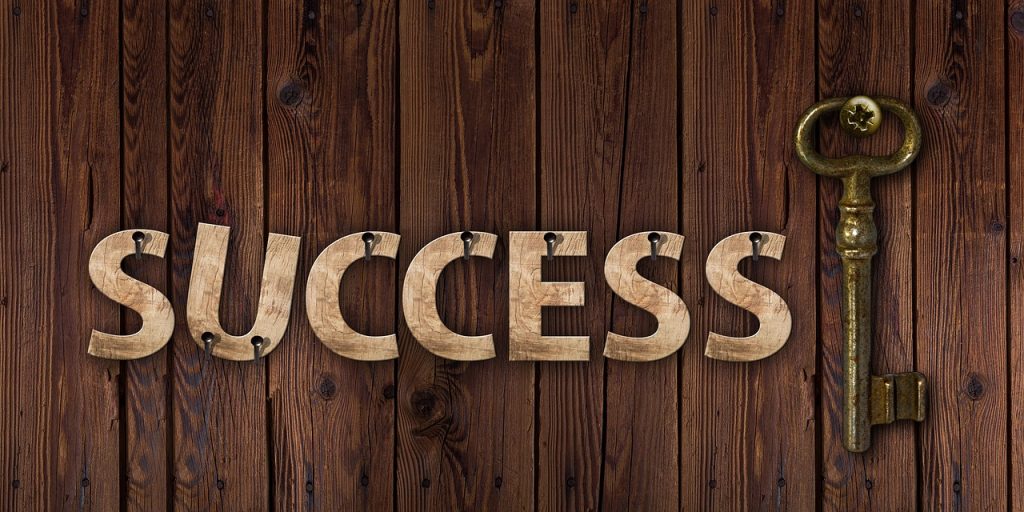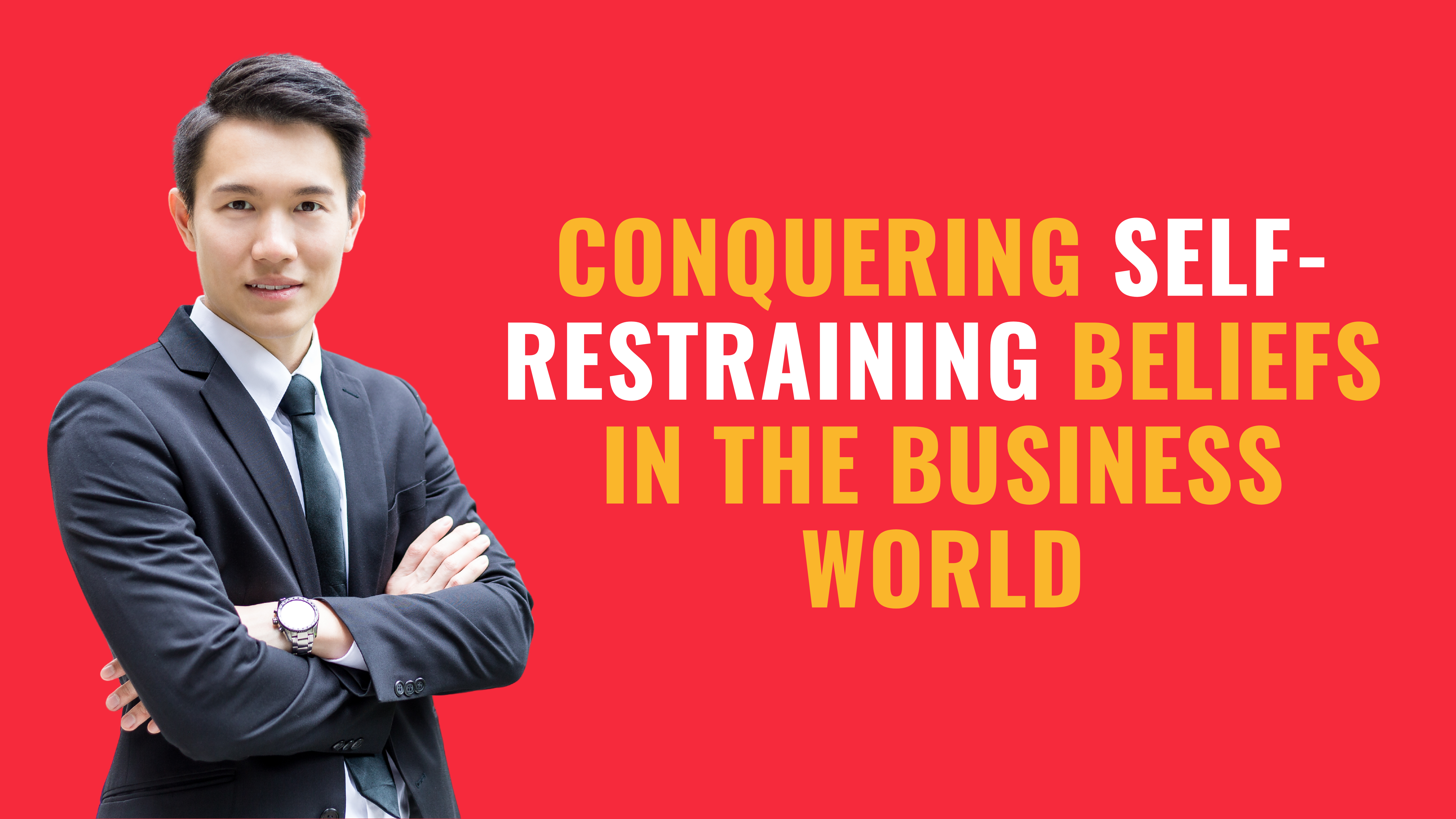Have you ever experienced the sensation that you were impeding your own progress in your professional or business endeavors? It is possible that you had a brilliant notion but lacked the fortitude to implement it. Conversely, you may have refrained from grasping opportunities or undertaking risks due to persistent self-doubts. Such being the case would indicate that you are not alone. A “fear factor” refers to self-limiting beliefs that have the potential to obstruct the achievement of success and is a challenge faced by numerous entrepreneurs and professionals.
Define the Fear Factor

The fear factor comprises adverse cognitions, uncertainties, and vulnerabilities that impede our progress toward objectives or hinder us from undertaking actions. That little voice in our heads that convinces us we are not intelligent, capable, or decent enough to succeed. This apprehension is reinforced by self-imposed constraints – erroneous narratives that we construct regarding our capabilities, value, and prospects.
What are Self-limiting beliefs?

Self-limiting beliefs are presumptions or perceptions that we maintain regarding ourselves, which impede our actions and hinder us from reaching our utmost capabilities. Common origins of these beliefs include negative self-talk, societal conditioning, or past experiences. They can impede us from pursuing our ambitions, taking risks, or venturing beyond our comfort zones despite their tremendous strength.
The subsequent ten prevalent self-limiting beliefs may impede one’s progress in the realm of business:
1. “I’m not good enough.” This conviction arises from an absence of self-assurance and may impede your willingness to undertake novel challenges or have faith in your own capabilities.
2. “I’m not smart enough.” The general opinion among individuals is that attaining success necessitates an exceptionally high degree of intelligence, an attribute that they fail to possess.
3. “I think I don’t have what it takes.” People keep thinking that they don’t possess enough skills to accomplish their dreams and achieve success.
4. “I think I’m not ready.” This self-imposed constraint induces a propensity for postponing or delaying action due to an insufficient sense of readiness.
5. “I don’t deserve success.” Some people may be experiencing regret, feelings of unworthiness, or the conviction that they do not merit positive outcomes in life.
6. “I’m too old or too young.” Many people or individuals use age as their excuse. These people or individuals think they are too young to start a business or too old to start a business.
7. “I don’t have the time.” This conviction implies that one is excessively occupied or overburdened to undertake novel endeavors or effectuate personal transformations.
8. “It’s too risky, I can’t handle it.” The fear of losing or failing can hinder a person’s willingness to take calculated possibilities, which are frequently required for growth and success.
9. “I’m not creative enough.” Certain individuals hold the belief that achieving success in the business world necessitates an exceptional degree of creativity or innovative thinking, which they themselves lack.
10. “I’ll never be good enough.” This conviction originates from an ingrained feeling of insufficiency and has the potential to generate a self-reinforcing cycle of disappointment.
Conquering Limiting Self-Beliefs

Although self-limiting beliefs can be extremely potent, they do not have to dictate your success or control your existence. You can uncover your true potential and attain greater business and professional success by developing an understanding of these doubts and actively striving to confront and surmount them.
The following are some methods for overcoming self-limiting beliefs:
1. Define your personal convictions:
Developing an understanding of the self-limiting beliefs that impede progress is the initial stage. Consider the negative self-talk and self-deprecating narratives that you construct regarding your capabilities and prospects.
2. Challenge the validity:
It is time to challenge the validity of self-limiting beliefs once they have been identified. Ask yourself whether this belief is truly accurate. From where did it originate? What evidence exists to substantiate or challenge the claim?
3. Reorient your perspective:
Upon critically examining one’s self-limiting beliefs, deliberately restructure one’s mindset to incorporate more positivity and empowerment. Substitute negative self-dialogue with affirmations that bolster one’s capabilities, strengths, and value.
4. Request assistance:
Form an alliance with like-minded individuals, including mentors, colleagues, and peers, who can offer motivation and assist you in confronting your self-imposed constraints.
5. Make gradual progress:
The process of surmounting profoundly entrenched beliefs requires considerable dedication and time. Establish modest, attainable objectives that serve to challenge one’s limiting beliefs and foster self-assurance.
6. Appreciate advancements:
Acknowledge and commemorate your accomplishments, irrespective of their magnitude. By doing so, you will strengthen your newly formed, more optimistic convictions and remain motivated.
7. Learn from failures:
Obstacles and setbacks are inevitable to be encountered along the path. Instead of perceiving them as validation of your self-imposed constraints, approach them as occasions for personal development and exploration.
8. Develop your self-compassion:
Maintain patience and kindness toward yourself during this procedure. It is a voyage to overcome self-limiting beliefs, and it is critical to refrain from harsh self-criticism and judgment.
Success in the business world is frequently accompanied by internal and external challenges and obstacles. Although external factors such as market conditions, competition, and economic trends hold significance, the most formidable adversary may be one’s internal struggle against self-limiting beliefs and dread.
You can uncover a realm of potential and possibility by developing an understanding of your self-limiting beliefs and applying effort to surmount them. You will possess enhanced capabilities to adopt calculated risks, capitalize on opportunities, and pursue your aspirations with assurance and perseverance.
Bear in mind that the only true limitations are those we impose upon ourselves. Through overcoming one’s dread and reevaluating self-imposed limitations, it is possible to liberate oneself from these imperceptible constraints and attain the level of success that has always been desired.



